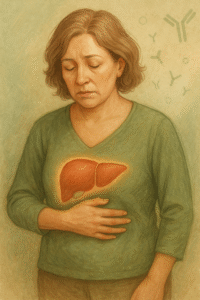Autoimmune Hepatitis is a chronic autoimmune disease in which the body’s immune system mistakenly attacks liver cells, causing inflammation and damage. This can lead to scarring (cirrhosis) and liver failure if not treated. It often develops slowly and may go unnoticed until significant liver damage occurs.

